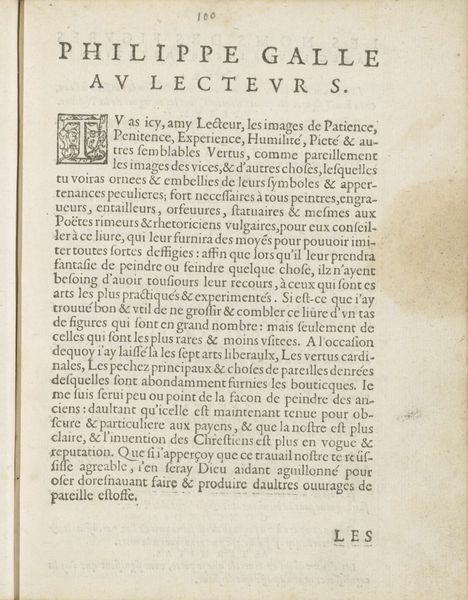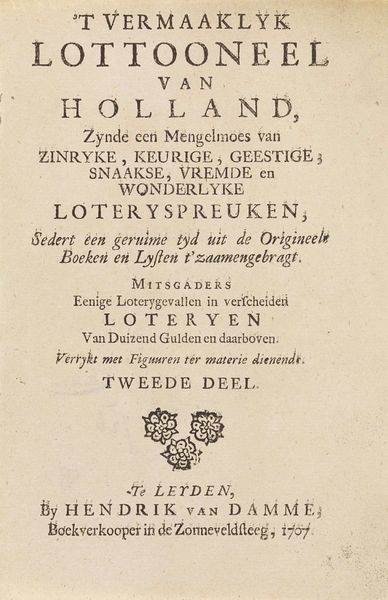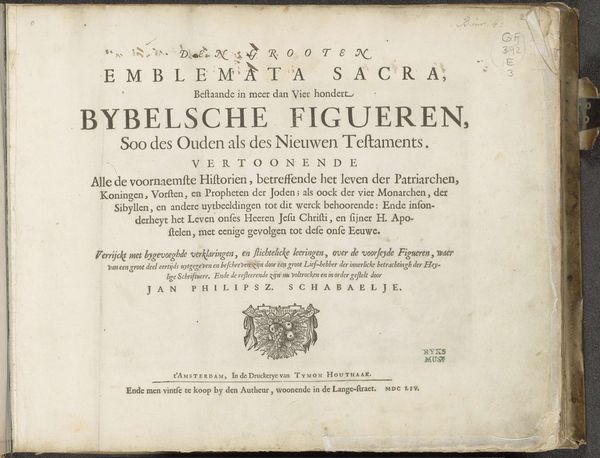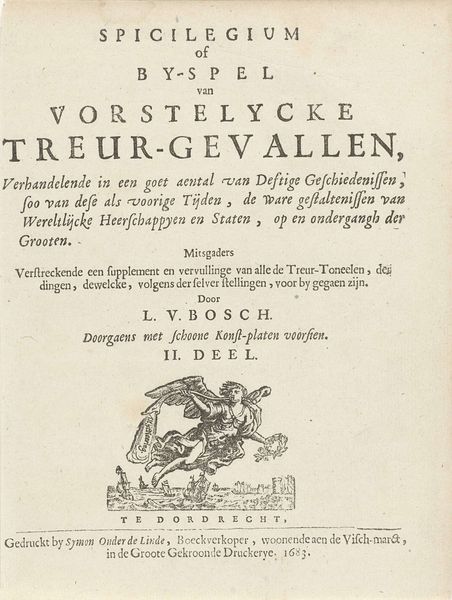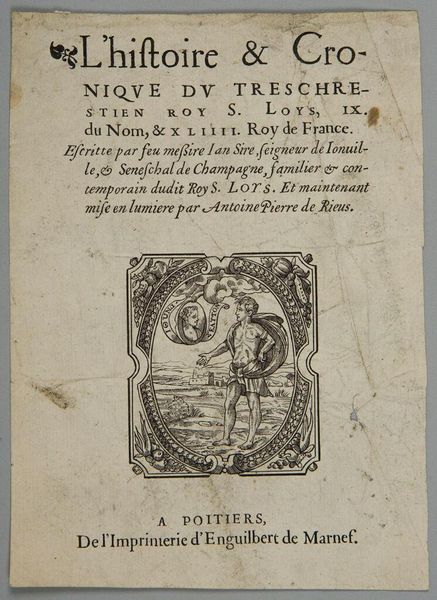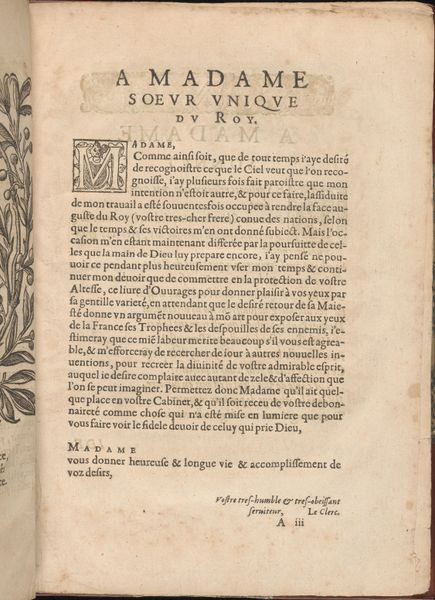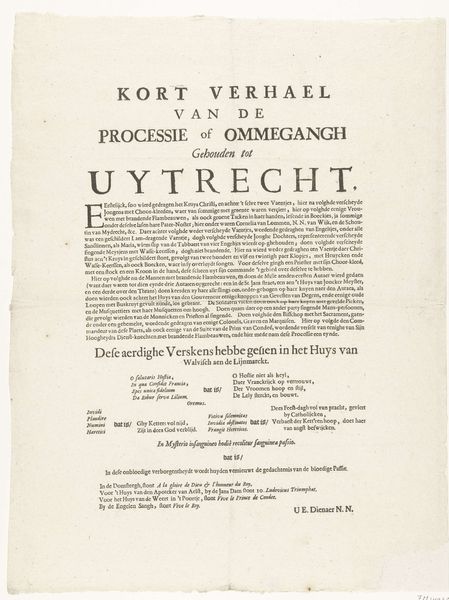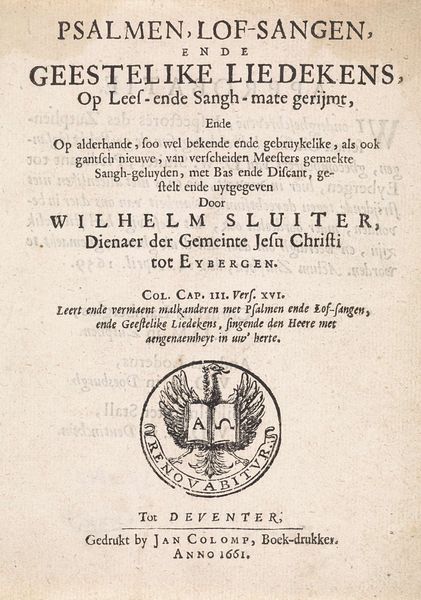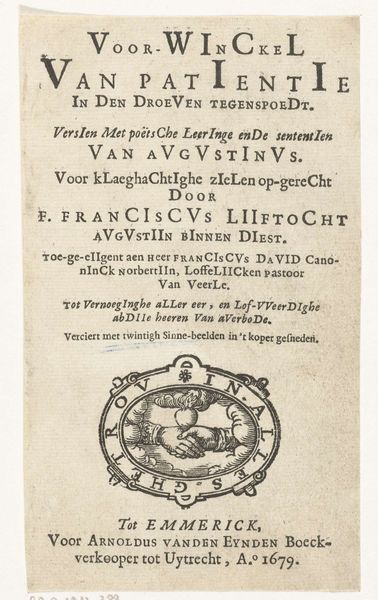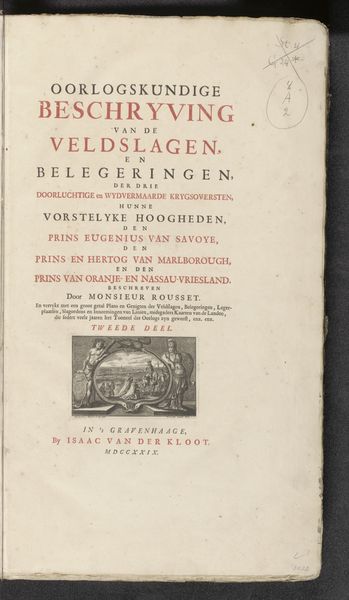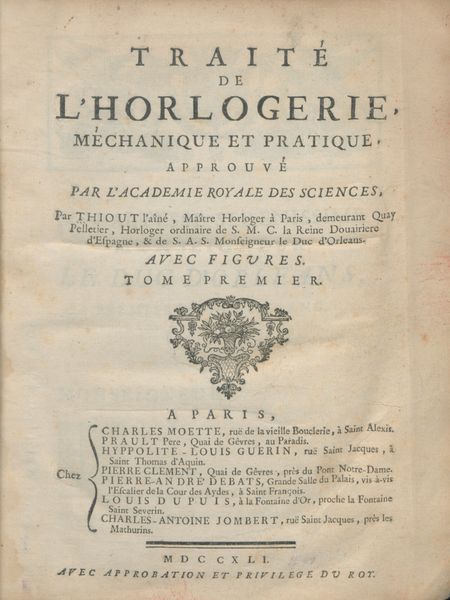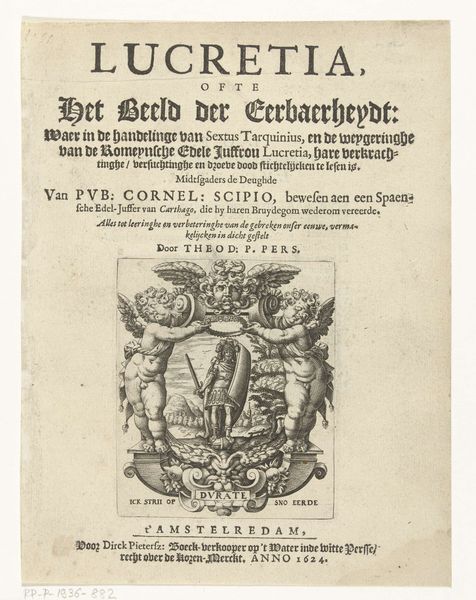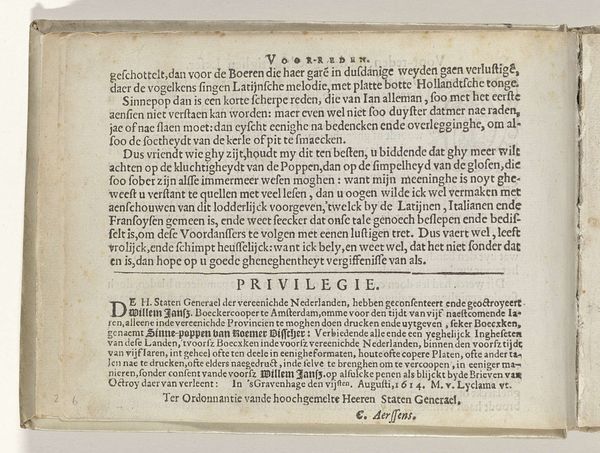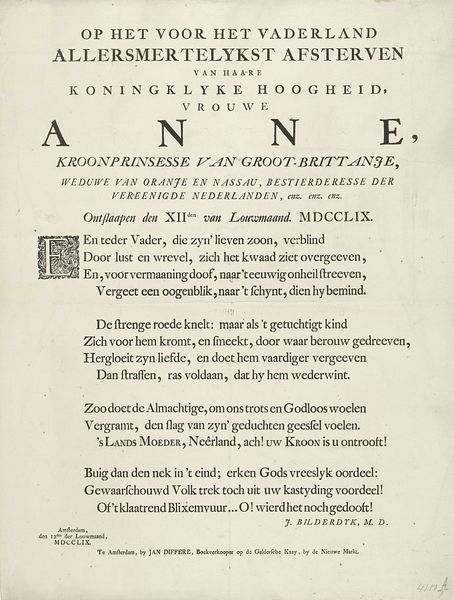
graphic-art, print, paper, typography, engraving
#
portrait
#
graphic-art
#
aged paper
#
dutch-golden-age
# print
#
old engraving style
#
hand drawn type
#
paper
#
text
#
typography
#
hand-drawn typeface
#
fading type
#
thick font
#
history-painting
#
handwritten font
#
golden font
#
engraving
#
historical font
#
columned text
Dimensions: height 212 mm, width 165 mm
Copyright: Rijks Museum: Open Domain
This is a title page from 1676, for "Wouter Schouten's East Indian Voyage," printed in Amsterdam. The page, dominated by black ink on aged paper, presents a rigid structure through its typographic arrangement. Notice how the font sizes diminish, creating a visual hierarchy that draws the eye downwards. The dense blocks of text promise exotic tales and detailed descriptions of the East Indies, teasing encounters with the Portuguese and local populations. But it is the emblem at the page's center that captures attention. Here, an image of a deer leaps above what seems to be a stormy sea with the Latin inscription "donabit hoc cesar" suggesting that the depicted deer represents the granting of a gift from the emperor. The stark contrast of the black lettering against the off-white paper lends the page a formal quality, yet the promise of adventure hints at destabilizing established notions of geography and culture. It invites us to consider how the formal elements of typography and emblem work together to sell the "Voyage".
Comments
No comments
Be the first to comment and join the conversation on the ultimate creative platform.
